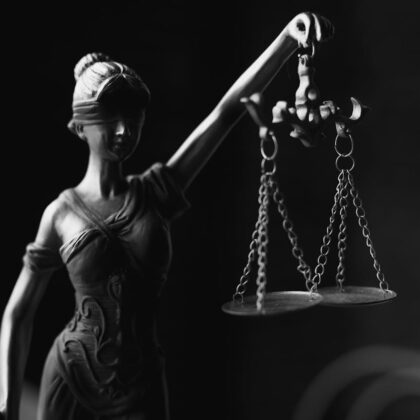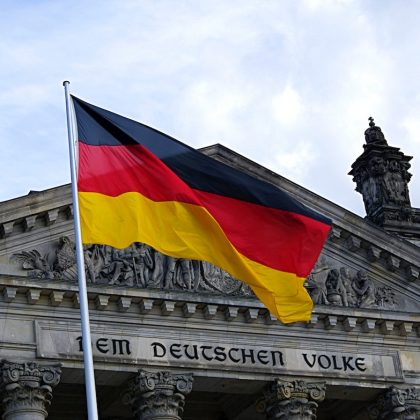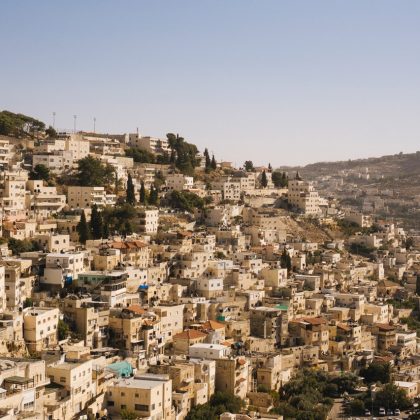The Return of the Palestinian Question to the International Court of Justice
Introduction
On 30 December 2022, the United Nations General Assembly (UNGA) passed Resolution 77/247 on ‘Israeli practices affecting the human rights of the Palestinian people in the occupied territories’. In addition to condemning the Israeli occupation, UNGA also requested an advisory opinion, from the International Court of Justice (ICJ), on the legal effects of the occupation on Palestinian self-determination, which was recognised by ICJ on 20 January 2023. This second UNGA request allows the Palestinian Authority (PA) to refine the judicialisation started two years ago with the first opinion, dated 9 July 2004, on the legal consequences of building a wall in the occupied Palestinian territory (Wall Affair).
This article examines the centrality of UNGA in facilitating the judicialisation process and explores the ICJ’s capability to enhance the Palestinian multilateral strategy. The ICJ’s jurisdiction, assessment of Israel’s self-defence claim, determination of Israeli violations of international law, recognition of applicable legal corpus, and consideration of erga omnes obligations are crucial factors shaping the ICJ’s verdict and its impact on the Palestinian question. Ultimately, the anticipated ruling has the potential to reinvigorate the judicialisation process, hold Israel accountable for its actions, and trigger international measures for restoring peace and security in the region.
UNGA’s Centrality in Judicialization
PA’s multilateral approach, ignited in 2009 by ICJ’s 2004 opinion, relies on foreign organisations to establish a Palestinian state by recognising it. The advisory opinion decided upon a plethora of arenas: justifiable defence, self-determination, international human rights law (IHRL), international humanitarian law (IHL), and criminal law. However, PA did not anticipate such thoroughness. This inclusive ruling aided PA in legally establishing its cause and judicialise the conflict under ICJ’s global agenda. Therefore, the UNGA’s role in interrogating ICJ under Article 96 of the UN Charter (UNC) is imperative.
Since the 1960 and 1970s, the UN has championed the Palestinian cause by gradually uplifting Palestine’s status. It initially recognised the cause as the Palestinian Liberation Organisation (PLO), from 1974 and 1988, to ultimately recognise Palestine, post-1988, for granting PA the rights and prerogative, allowing them to participate in the UN actively. On 29 November 2019, UNGA recently awarded Palestine the observer status as a non-member state, enabling Palestine to join multiple international organisations and ratify multilateral treaties and boost PA’s judicialisation.
Thus, Palestine was able to make ICJ ‘claims’ against other governments after acceding to the Rome statute in 2015. To exemplify, on 28 September 2018, an initial petition, vouched upon the 1961 Vienna Convention on Diplomatic Relations, was filed against the USA for the latter’s decision to shift the US embassy from Tel Aviv to Jerusalem.
Wherefore, UNGA succours Palestine query international tribunals about Israeli military occupation and its effect on Palestinian self-determination. Additionally, UNHCR’s December ICJ appeal was not accidental. Instead, it was an intervention amid worsening Israel-Palestinian relations and a dismal outlook for resolution. The deterioration is bolstered by Benjamin Netanyahu’s announcement Jews have ‘exclusive and inalienable right to all parts of the Land of Israel.’ PA must alter its approach since world society, especially Arab Nations, is losing interest in the problem.
ICJ’s Capability in Enhancing Palestinian Multilateral Strategy
The ICJ’s ability was established from its 2004 decision on (a) jurisdiction, (b) inherent defence matters, (c) suitable legal corpus, (d) Israel’s violation of international obligations, and (e) obligations incumbent on all states to these violations.
Court’s Jurisdiction
While Article 24 of UNC assigns peacekeeping jobs to UN Security Council (UNSC), Article 12 restricts it until inaction or request to UNGA. The ICJ concluded that the USA’s veto on the Palestinian question refrained the UN from performing its goal. The court cited Resolution 377, Acheson Resolution, ‘in any case where there appears to be a threat to the peace, breach of peace, or act of aggression’ because of non-attainment of unanimity amongst permanent members, ‘(UNGA) shall consider the matter immediately to make appropriate recommendations to (its) members.’ Now, the court might again criticise the Council’s inaction despite Israel’s ignorance of all Israeli-Palestinian resolutions since 2004.
Secondly, the court refuted Israel’s contention of the UN Agreement’s desire to be political and non-legal by opining that issue ‘aims at the legal ramifications of a certain factual situation, taking into consideration the norms and principles of international law.’ The court may now likely answer UNGA’s query legally and hence, question the legality of the 55-year-old military occupation.
Israel’s Self-Defence Claim
Article 51 of UNC, which defines self-defence (jus ad bellum) as the first question, was held irrelevant to the wall affair by ICJ in 2004. It could only be invoked if PA approaches court with a claim of armed aggression, as is the case now.
Armed aggression is the ‘state using military force against another state’s sovereignty, territorial integrity or political independence.’ During the last two decades, it has also encompassed non-state armed organisations, like armed Palestinian factions. Israel must meet the dual test of necessity and proportionality to argue its ‘anti-terrorist operations’ against armed organisations as justified by Article 51. Thus, Israel needs to manifest (a) little choice but to use force against military objectives and (b) object of force to meet the goal of ending armed aggression. The success is doubted because not only the Palestinian civilian fatalities, the demolition of civilian dwellings, and the targeting of educational, humanitarian, and medical facilities are descoped from the test but also the breach of international law by military occupation remains non-justifiable under Article 51. According to Y. Dinstein, the right to self-defence is only invoked in response to an armed attack, necessitating a proportional use of counterforce. While the actions taken by Israel, such as land requisitioning, undeniably have negative humanitarian and socio-economic consequences for the Palestinians, they do not constitute a counterforce response. Therefore, any attempt to justify these actions as self-defence under Article 51 is invalid and cannot be supported.
Israeli Violation of International Law
ICJ, in 2004, breached IHRL and IHL via Israeli laws and thus, limited Palestinian self-determination. Flouting, in the form of promotion of settlement and annexation, has continued for the past twenty years, despite UNSC’s Resolution 2334 requiring the occupier to pause all settlement activities in occupied territory promptly. It allies with the Geneva Convention’s stand against the violation of territorial sovereignty by occupation, not temporary but rather permanent like the 55-year-old Israeli occupation. Hence, the court shall heavily weigh the repercussions of continuing occupation, which might lead to West Bank annexation. Eventually, Israel must pay ‘indemnifying’ restitution to restore the condition that would have presumably been there if the alleged crime had not been committed. In toto, the Jewish state should leave the occupied land and lift its Gaza Strip embargo.
This ruling of ICJ should account for the observations of other international organisations, the UN’s confirmation of PA’s claim of illegal occupation, ICJ’s verdict of violation of international law by wall construction, ICC’s prosecutor’s subsuming consideration of settlement construction as a war crime and European Union (EU)’s explicit denial over recognition of Israel’s sovereignty over territories occupied since 1967. But the history still narrates an unpromising future of continued Israeli transgressions despite PA favouring judgement.
Applicable Legal Corpus
To adjudicate upon the matter, ICJ shall recognise the applicable legal corpus (jus in bello). ICJ, in 2004, founded two eligible corpora:
Firstly, it invoked IHL while rejecting Israel’s argument, Article 2(1) of the Fourth Geneva Convention restricts its application to only a contracting state; hence, it does not apply to Palestine. ICJ held that the clause, ‘Convention shall likewise apply in all circumstances of occupation of the whole or part of a High Contracting Party’ does not limit its application, and thus, it is construed to involve non-state party territory. To refrain from such contentions, Palestine acceded to the four Geneva Conventions and their additional protocols between April 2014 and January 2015. Additionally, the court bound Israel to the Fourth Hague Convention of 1907’s Regulation on the Laws and Customs of War on Land despite the latter not being a signatory.
Secondly, the court opined that IHRL and other human rights conventions should apply to Palestine, irrespective of the war-like situation, thus devastating Israel’s contention. This approach is consistently maintained by the court, like in the Case of Armed Activities in the Territory of the Congo. Deciding otherwise would have violated the Covenant on Civil and Political Rights and the Economic, Social, and Cultural Rights Accord of 1966.
Erga Omnes
The ICJ through its judgement in Barcelona Traction stated that erga omnes obligations affect all states with ‘a legal stake in the safeguarding of these rights.’ The right to self-determination and IHL norms are ‘so basic to respect for the human person … that they impose … on all states’ was opined by it in License of the threat or use of nuclear weapons.
The ICJ should reiterate its 2004 stance of non-acceptance of Israel’s occupation, colonisation, and annexation of Palestinian land, including East Jerusalem by ‘not offering help or support to sustain the situation’ by other states. Alternatively, the court should explicitly mention the non-compliance of its ruling as noted by the progression of Yesha Council, an Israeli organisation’s process in a settlement.
Finally, the court should determine other obligations incumbent on all states due to Israel’s violation, in addition to passing an order in favour of Palestine to kickstart the UNSC’s actions for restoring international peace and security, under Chapter VII of UNC, by sanctioning measures against Israel, an arms embargo and investigating Israeli official’s responsibility for international crimes.
Conclusion
To provide an upshot to preceding deliberations, it can be stated that ICJ’s anticipated verdict shall play a critical role in Palestine’s multilateral strategy. The former has the potential to put UNSC into action and impose obligations on other states. This ruling shall not only reinstate the trust into judicialisation but also bring the conflict back into the light. Despite of multiplicity of positive global effects, the possibility of changes in ground reality still lingers.


Read more on this topic in the Asian Journal of International Law.






